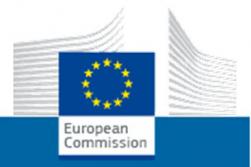Thirteen months after the U.S. Federal Trade Commission settled its antitrust investigation of Google Inc. by flatly declining to regulate the company’s search practices, the European Union is poised to do just that. This development highlights a serious rift between the two most influential competition authorities worldwide — and their very different value systems.
It has been true for years that on important Internet policy issues such as privacy, defamation, censorship and government surveillance, the 30-member EU has adopted principles far more intrusive for businesses, and likewise more protective of consumers, than in the U.S. Similarly, ever since a proposed General Electric-Honeywell merger was scuttled by the European Commission’s competition directorate in 2000, there have been a few highly visible cases in which the EU’s view of antitrust as a basis for protection of smaller entities in the marketplace has produced sharply different results.
So it is hardly surprising that EU Competition Commissioner Joaquin Almunia announced recently that several expanded concessions offered by Google to resolve his concerns about the fairness of the company’s search practices — which would fundamentally alter search by requiring Google to display links to rival search competitors on results pages served to its own search users — had finally borne fruit. The most basic competition issue asserted by the European authorities was that Google gives preference to its own services, like travel search, by placing those “specialised” (in European spelling) results above “organic” or natural search results. Google proposes to label these specialized results as paid placements and to add prominent links to rivals alongside. Despite vocal complaints by Google’s so-called vertical competitors that these substantial changes in search display — putting Expedia travel link results, for instance, on the same level of visibility as Google’s own sponsored links — still do not meet their needs, the fact that the EU is using its power to force serious search engine revisions on Google represents a watershed moment illustrating how far apart the two systems were and can still be at times.
There are three principal ways in which the inconsistent U.S. and EU Google settlements epitomize this continuing war of the worlds over antitrust enforcement:
- Is Google a Bottleneck “Gateway”? Almunia’s investigation was overtly premised on the concept that Google’s 90 percent share of Web searches in Europe (compared to some 70 percent in the U.S.), equals monopoly power as a gateway essential to success for Internet businesses. American jurisprudence, in contrast, has largely abandoned the bottleneck classification and its corollary, the “essential facilities” doctrine. Moreover, U.S. competition enforcers and courts distinguish between consumer preferences (which are changeable) and a dominant’s firm’s economic power (which can persist for long only when sheltered by entry barriers) in a way that contradicts the EU premise. As one federal court explained in January, the “ability to act as a ‘gatekeeper’ distinguishes broadband providers from other participants in the Internet marketplace — including prominent and potentially powerful edge providers such as Google and Apple — who have no similar control over access to the Internet for their subscribers and for anyone wishing to reach those subscribers.”
- Is Consumer Deception an Antitrust Issue? The EU has been focused, in large part, on the fact that when redesigning its search result displays, Google may have confused Internet users by not specifically indicating that some results are now based not on generic search algorithms, but instead a decision to integrate links to Google’s own services on results pages. Almunia believes that the potential for misleading consumers justifies a competition remedy, saying that Google must “signal what are the relevant options, alternative options, in the way they present the results.” In contrast, American antitrust law is clear that fraud, deceptive advertising and other commercial bad acts alone are not of competitive concern. Consumer protection remains important in the U.S., but our legal principles separate regulation of consumer issues from the competition-preservation function of antitrust policy.
- Should Antitrust Protect Traffic to Google’s Competitors? By far the biggest difference in the EU approach to competition enforcement is the historical European preference for domestic firms in established industries. In France, for instance, Internet publishers pay a tax that subsidizes newspapers and printed mapmakers, something anathema to the American idea of a free market. Where Google is concerned, the question becomes whether, as an important source of Web traffic for competing specialized search services, its practices should be regulated in order to guarantee hits to rival sites. The EU has been somewhat schizophrenic, at first condemning what it termed “diversion of traffic” to Google itself and characterizing its mission as to “guarantee that search results have the highest possible quality,” then later stressing that its “aim is not to artificially send traffic to sites that compete with Google.” The bottom line, however, is that by seeking to stop Google from “diverting” Internet search users from the complaining sites, the EU is in part attempting to dictate the results of competition, something American antitrust leaves to the marketplace.
Yes, these differences can sometimes be overstated. Both the EU and American antitrust agencies mutually believe that competitive markets produce the best outcomes and that, absent abuse by firms with monopoly power, the government should not try to pick winners and losers. The contrasting values typically appear only in hard cases, where the facts are ambiguous or the competitive consequences difficult to predict. Different enforcement decisions in Europe and the U.S. are uncommon, but when they do occur, are important as more than isolated instances.
There is a ray of light in all of this, one conclusion on which both Almunia and Jon Leibowitz, the former FTC Chairman who closed the U.S. government’s investigation of Google last year, agree wholeheartedly. Neither the EU nor the FTC accepts the premise of complaining search competitors that antitrust law embraces a concept they term “search neutrality,” namely that search providers must treat all queries and results under the same objective standard. The FTC said it had neither the desire nor institutional expertise to “regulate the intricacies of Google’s search engine algorithm.” The EU likewise concluded that its Google remedies should address “the way they present their own services” rather than “discussing the algorithm” used for Internet search.
This is one way, unlike the Martian invaders in the H.G. Wells novel, that the shared histories of America and Europe give the developed world a sustainable advantage in economic performance. On both the continent and in the New World, new business ideas succeed if they are better designed to meet the needs of consumers. With rare exceptions, we do not intervene in the marketplace to achieve government-desired competition results or to exclude some firms for political or social reasons. That is particularly key to the different Google search remedy approaches. Since everyone admits Google got to its present position by building a better search engine, the consequences of allowing competition policy to morph into an artificial tool of technology regulation by way of search neutrality are enforcement quicksand for the government, regardless of which “side of the pond” it sits.



Leave a Reply